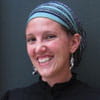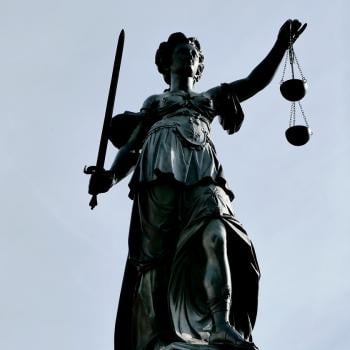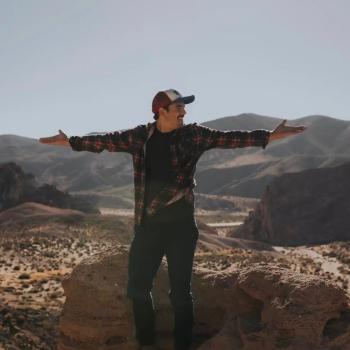 By Melissa Scholten-Gutierrez
By Melissa Scholten-Gutierrez
If you had asked women one hundred years ago what a woman's role would be in Judaism today, I bet their predictions would be as wishful as women one hundred years from now will think mine are. What I do know is that Judaism is an ever-evolving religion, rooted in history, observance, and interpretation.
As I write this article, the weekly Torah portion is Pinchas (Numbers 25:10-30:1). In Pinchas, we observe the first documented struggle by women for equality. There is a census taken in preparation for the Israelites' battle with Midian, which reveals that Zelophek had has died without leaving any male heirs. He has five daughters who petition Moses to inherent the land stating, "Let not our father's name be lost to his clan just because he had no son! Give us a holding among our father's kinsmen!" (Numbers 27:4, JPS Translation) As this is not something which has previously been addressed, Moses brings the case before Gd, and not only is the daughter's claim upheld as just, it becomes the law that when a man has no sons his daughters have first right to his land. While this can be seen as a way of making women second rate, since the sons would still have first priority, I choose to see it as Beruriah the Scholar does -- that Jewish law has the flexibility to expand to embrace women.
Ironically, this portion was selected to be my Bat Mitzvah portion by my (female) Religious School principal, knowing I would someday be a leader. Little did she know how true that would turn out to be, and how much I would push for women's inclusion in such a different way than I did as an adolescent. I now know that equality is not the only answer, and I hope that in years to come that becomes a more prevalent thought process. There are many beautiful traditions and mitzvot (commandments) that apply specifically women. I think it is a great challenge to modern Jewry to find the melting point of all these, to find a way for women to be empowered as leaders in a way they are comfortable with, across all denominations and regardless of titles.
One of Judaism's irrefutable core values is learning, especially Torah learning. While there are learning opportunities for girls across the denominational lines, there are fewer programs available to women. While there are many Yeshivot (places of full-time Torah learning) for men, their counterparts for women often offer less variety, have less available space, and/or are less accessible for the average woman who may be interested in advanced Jewish study. There are however egalitarian Yeshivot, where women and men can learn in a true Yeshiva setting together. Additionally, there is a rising number of learning programs (not quite a Yeshiva, but still a place for advanced study) being offered by Orthodox outreach organizations. I believe that the number of advanced learning programs for women will rise, offering more opportunities for women to learn whatever they desire in a setting that they find comfortable.
Whatever you choose to call women who are well educated and take on leadership roles -- Rabbi, Rabba, Yoetzet Halacha, Jewish Educator, Rebbetzin, or "just" an involved lay leader -- there will be more of them in the years to come. Women are continually becoming more empowered to step into leadership positions across the spectrum of contemporary Jewry. While we argue today over what to call women who step into greater leadership roles, I believe that there will reach a point where no one will believe this was ever a question.
Currently, there is a synagogue in Jerusalem where a minyan (group of ten required for many prayer functions) is defined as both ten men, and ten women. Men and women embrace a sort of separate but equal phenomenon here, unlike anywhere else in the world. Everything that is done by a man is also done by a woman, just on the other side of the mechitza (divider). While some people feel this is an extreme stance to take, I believe it sets a new standard and that it paves the way for a new kind of leadership for women in Judaism.
Women have been leaders in Judaism since biblical times, continually shifting their roles to meet the needs of their communities, and I cannot imagine that ceasing in the years to come. I hope and pray that it becomes less of a fight for women to act where they feel they are needed, that women will find a way to happily and meaningfully observe mitzvot, and that women will continue to be empowered to speak out and educate their peers.
Melissa Scholten-Gutierrez is a social worker, educator, writer, and mikvah advocate. Melissa has her Masters in Social Work from The University of Illinois, Urbana-Champaign and her undergraduate education was completed at The University of California, Irvine. Melissa is the proud co-author of Redefining Rebbetzin, and is a regular contributor to the Modern Midrash blog at Patheos's Jewish Portal. She can be reached at [email protected].
7/12/2010 4:00:00 AM




